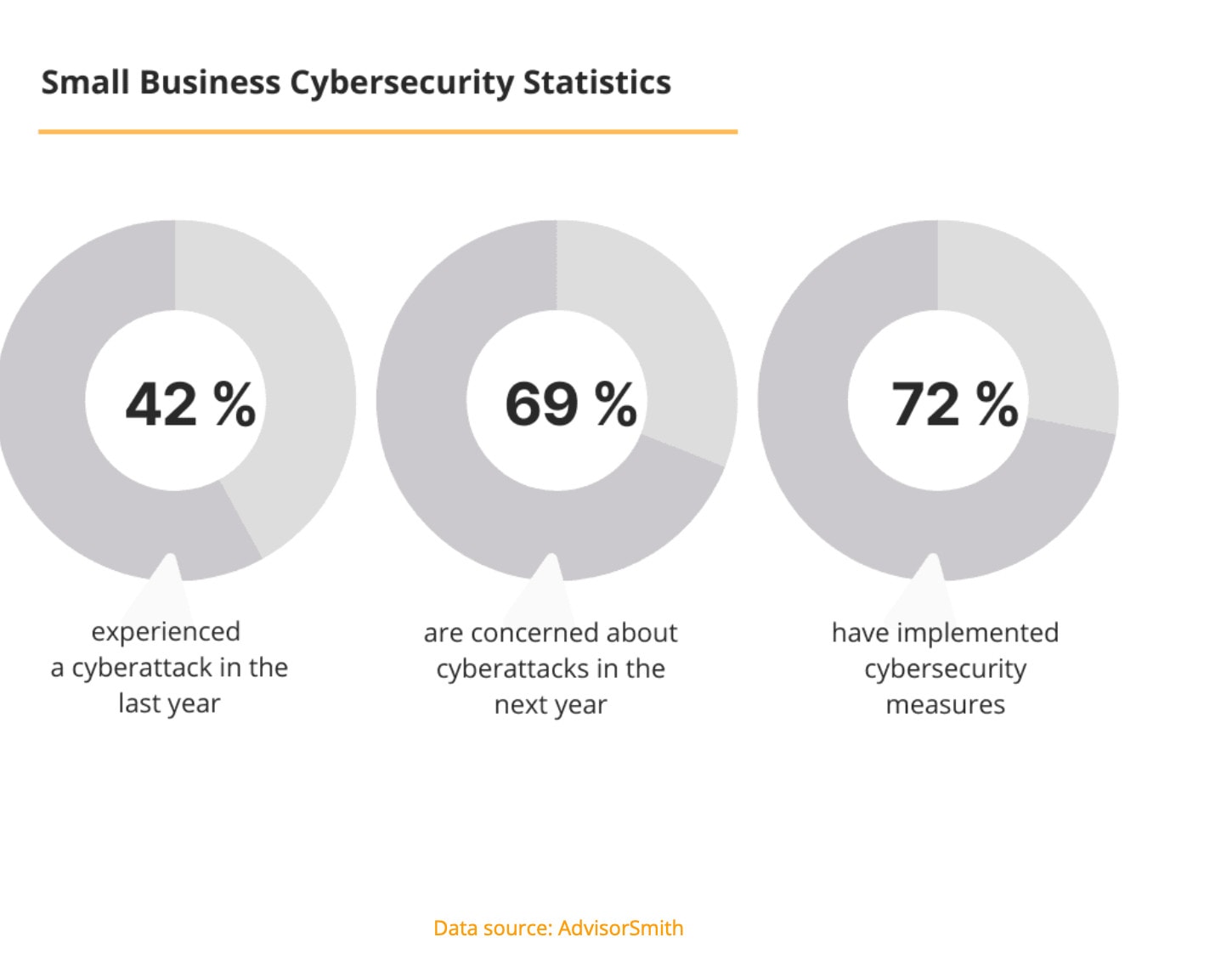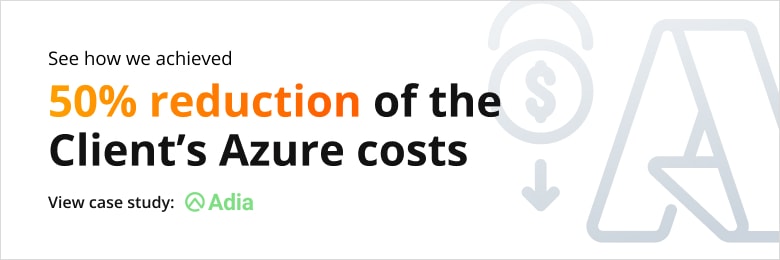
The advantages and disadvantages of Cloud Computing
Already on the rise in the 2010s, since 2020 the world has been migrating over to cloud computing by the millions and it doesn’t look like this trend is going to do anything except continue in its upward trajectory.
The technological revolution in the world is in full swing, covering almost all areas of life and business. As it turns out, it works not only in normal conditions but also during emergencies, such as the coronavirus epidemic which required increased efficiency of systems that enabled remote work on a much larger scale.
Why should you consider adopting Cloud technology?
Cloud computing refers to the process of storing and accessing data on the internet. Storing data in the cloud removes the need to keep any digital information on your personal computer’s hard drive.
With the cloud being accessible via the internet, you connect to a remote server from which you can reach your stored data, run applications and deliver content to connected devices no matter where you are.
There are three main types of cloud networks: Private, Public and Hybrid. You can read more about their characteristics and differences in the article: “Public Cloud vs Private Cloud vs Hybrid Cloud: What are the differences?“
With so many enterprises migrating to the cloud as part of their digital transformation strategy, it’s important to understand what the main benefits (and drawbacks) of cloud computing are, so you can arm yourself with all the relevant knowledge which will allow you to formulate the best cloud strategy.
What are the advantages and benefits of Cloud Computing?
Here are some of the biggest benefits of cloud computing that tempt companies to make the switch.
Cost reduction
The most obvious benefit of cloud computing is the potential cost saving. Cost, finance and budget are forever at the forefront of every business and so it makes sense that any product or service which can help save the company’s money will be right up there at the top of the list of reasons why they should proceed.
Running a private server costs many thousands of dollars just for the hardware setup, let alone the software and hardware maintenance that is required on an ongoing basis. They also require space, which costs money, and cooling, which in these difficult times of insane energy price hikes is no small matter.
Cloud computing takes care of all these issues. The cloud services provider maintains all the software and hardware required to run the servers, the maintenance and the energy costs. All you have to do is pay the monthly fee!
It goes without saying that cloud-based applications come at just a fraction of the cost of going it alone, making it a fantastic choice for small and large enterprises alike.
Cloud security
One of the most attractive benefits of adopting a cloud computing strategy is the high level of security it comes with. Despite an occasional over-dramatised news headline stating the latest celebrity has had their private pictures hacked, cloud-based storage is extremely safe, especially when compared to private data storage.
Cyberattacks cost a lot of money. Statistics say that about 42% of small business experienced at least one cyber attack in the last year. With the average global cost of a data breach reaching as high as $3.62 million, up to 60% of small companies have to close within 6 months of being hacked.

Although there are many aspects to consider when it comes to cloud cyber security, cloud computing on public or hybrid systems offers your data a much more robust layer of security that would be very expensive to achieve privately.
Cloud service providers are obligated by law to protect your data to the best of their ability, and they are constantly updating their security protocols. With digital encryption and security improving on almost a daily basis, migrating to the cloud is a very sensible choice to make.
Reliability of cloud infrastructure
Things break all the time, especially electronics. Case in point: reflect on how many portable hard drives ended up freezing on you in the mid-to-late 2000s only to end up in the bin, taking your family photos, movies and favourite television series’ with them – we assume it more than you would have liked it, right?
Cloud computing offers an unprecedented level of reliability for data. Cloud computing providers store data in multiple locations and they are constantly updating their servers, backups and cooling systems to optimise their processes.
They are covered in the event of almost any emergency – something that could not be said about your local network area.
Accesibility & Cloud collaboration
With cloud computing you can easily access your cloud storage and any of your files from any device with an internet connection. In this modern world of hybrid working models and a ‘work-from-home’ culture that looks set to stay, this level of unprecedented flexibility makes cloud-based operations the ideal solution for businesses and individuals.
This ease of accessibility makes collaboration extremely easy and viable. Gone are the days when we needed to save a Word document, name the version, then email it to a colleague.
Today we simply open up our shared Google document on our shared drive and everyone can collaborate on the same project, at the same time, from any corner of the globe!
Scalability of cloud technology
Cloud computing offers its clients almost unlimited storage. This means that scaling your business operations is extremely easy and can be done on a monthly basis.
There is no need to buy more hardware, hire more maintenance staff or increase your energy bills. You can quite simply click a few buttons and voila, expand your business!
Mobility
All data is accessible from various devices, including mobiles, which allows improving communication, collaboration, and workflow in any organisation. That, in turn, promotes efficient work during business trips.
Through the cloud, employees are also able to work from home, which is a popular solution during the pandemic (and post-pandemic) era. What is more, this flexibility has a positive effect on the work-life balance and the productivity.
Cloud Disaster Recovery (Cloud DR)
Enterprises that are using cloud services no longer need complicated disaster recovery plans. Cloud computing service providers deal with most problems by themselves doing it much more efficiently.
As many use cases show, the entire process finishes four times faster than in companies using in house infrastructure, and it works for all kinds of emergency scenarios — from natural disasters to power outages.
What is more, using the cloud ensures access to resources is always available, even if devices – like laptops or PCs – get damaged.
Productivity
An in-house infrastructure typically requires a lot of work, including configuring hardware, installing software patches and performing other time-consuming day-to-day activities.
By leveraging projects on cloud computing, there is no need to do many of the aforementioned activities, allowing IT teams to focus on key business objectives.
Sustainability of cloud environment
Companies using cloud computing utilise only the computing power they need, which, in turn, reduces their carbon footprint. Furthermore, taking advantage of the cloud solutions reduces energy consumption and carbon emissions by at least 30% compared to the use of on-site servers.
Again, SMEs benefit the most: for small businesses, the reduction in energy consumption and carbon emissions is likely to be 90%.
What is more, data centres run by major cloud service providers need to meet strict environmental standards. For instance, Amazon with its AWS announced that the company will achieve 100% renewable energy by 2030, as well as to reach net-zero carbon by 2040.
Control
Working with external agencies or clients often requires sharing many files. If a business doesn’t use the cloud, employees have to send files back and forth via email, which means only one person can work on a file at a time, whereas cloud computing allows companies to keep all files in one central location so all work can be done from one central copy in one format.
This entire process promotes collaboration, which increases efficiency and improves the company’s bottom line.
Automatic updates
Cloud computing users don’t have to worry about updating their software regularly. Cloud-based platforms and applications automatically refresh and update themselves, instead of engaging IT departments and forcing them to perform a manual update.
Thanks to that, companies can relocate their resources and IT staff to focus on performing tasks related to growing revenue.
Guide for successful cloud adoption
Download our comprehensive ebook for cloud adoption
What are the cons and disadvantages of using a Cloud infrastructure?
Despite there being a plethora of cloud computing advantages, there are also a number of drawbacks that must be considered before taking the plunge:
Internet connection
It goes without saying that in order to access cloud-based computing, you will need a good, stable internet connection.
In many parts of the world this won’t be an issue as both wired and mobile internet connections are very good, but that’s not always the case all over the globe.
Some countries, cities or more rural areas are still subject to slow, unreliable connections that are liable to stop working at times and may fail to process the data required. If you rely on cloud computing in these areas, any disruption to your internet source will quite literally grind the whole business to a halt.
Security of cloud providers
How is it that security is both an advantage and disadvantage of cloud computing platform? While there are a huge number of positives when it comes to security, the obvious downside that must be considered in any sensible conversation is that cyber attacks are possible and they do happen, albeit infrequently.
In essence, you are literally sharing the most intimate company (or personal) data with a 3rd party provider: how can you be 100% certain that your data is secure?
We hear about breaches all the time and there is always the chance that you could be the unlucky one. If that was the case, what do you stand to lose?
Understanding how your cloud service provider secures your data is crucial, and something that should not be overlooked when making the decision on which cloud computing services to go with.
You can read more about cloud security here:
- Cloud Security Architecture: which model is best for security?
- The complete guide to cloud security management
- The future of Cloud security: trends and areas for concern
Limited support and technical issues
Although this is not the biggest factor to consider when deciding whether or not to make the switch to cloud computing, it is a factor nevertheless. Some companies may not be as accessible as others when it comes to technical support and this can be not only damaging, but highly frustrating.
We’ve all been there; a situation has come up and you urgently need to speak to someone to fix it ASAP, but when you reach out for a solution, there’s only an FAQ and a general email enquiry address… no phone number, no live chat, no hope.
Accessing the troubleshooting section on the company’s website can be slow, frustrating and ineffective so make sure that the cloud provider you choose has adequate support systems in place when you need them the most.
Cloud service provider stops
Although rare, it may be the case that your cloud services provider shuts up shop and stops operating altogether. Of course, choosing to go with one of the big boys like Google or Microsoft, this is a very remote risk.
But there are many cloud service providers out there so going with one of the newbies could potentially be a risk.
Make sure to check out the company thoroughly first to avoid any unnecessary issues down the line.
Compliance and legal issues
Depending on the industry and jurisdiction, regulatory compliance can be a challenge in the cloud, especially if the cloud provider is located in a different country. When choosing provider you need to be sure it will be compliant with all your local regulations.
Vendor lock-in
Once you invest heavily in a specific cloud provider’s ecosystem, transitioning to another provider can be complex and costly due to compatibility issues and proprietary technologies.
A good solution is to think through before you make your final decision about the cloud based system and go with the most flexible solution.
It’s important for organisations to carefully assess their needs, weigh the advantages against the disadvantages, and formulate a well-thought-out cloud strategy that addresses potential challenges and risks. In many cases, a hybrid approach that combines both cloud and on-premises infrastructure might be the most suitable solution.
What can be done thanks to Cloud services?
Most of the cloud computing services fall into one of four categories: IaaS (Infrastructure as a Service), PaaS (Platform as a Service), SaaS (Software as a Service) and FaaS (Function as a Service), and you could use them for:
Software development — web, mobile, and API,
Application testing,
Data storage, backup and recovery,
Data analysis (i.e. snowflake cloud data warehouse),
Audio and video streaming,
Software on demand.
The advantages of cloud computing solutions are vast and varied – businesses can leverage these capabilities to enhance their operations, drive innovation and deliver value to customers and users in ways that were previously challenging or even impossible.
It’s worth having proper and well-thought through cloud strategy and cloud migration strategy in place. They will allow your company to decide on the best solutions and on when to start implementing them.
Another crucial part of cloud migration is choosing the right cloud service provider. When doing it, take into consideration the type of service you need, your legal requirements, your business needs and budget. It’s an important decision so it’s better to take time before making it!
Cloud Computing advantages and disadvantages: a summary
When it comes to weighing up the advantages and disadvantages of cloud computing, it should become clear pretty quickly that the advantages drastically outweigh the disadvantages.
Although the disadvantages may be enough to put some people off, it’s important to understand their scale in comparison to the possible advantages.
Remember, every single advantage offered by cloud computing comes directly from the cloud provider themselves.
This can’t be said of the disadvantages, many of which lay outside of their remit of power. Things happen, risks are everywhere, but the positives that come with the switch to the cloud are numerous.





